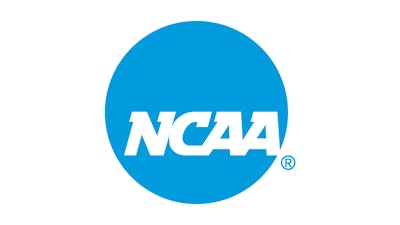
The Mental Health Advisory Group, created to advise the NCAA on emerging developments in mental health science and policy, will gather Thursday for its inaugural meeting.
After the 2020 Diverse Student-Athlete Mental Health and Well-Being Summit, the NCAA Committee on Competitive Safeguards and Medical Aspects of Sports commissioned the advisory group. It is tasked with reviewing and recommending updates to the NCAA's Mental Health Best Practices and other relevant mental health materials.
The group will specifically consider updates in support of the mental health and well-being of diverse student-athletes, particularly those of color, those with disabilities and those who identify as LGBTQ, as well as international student-athletes.
Additionally, the group will provide feedback on topics related to mental health, as assigned by CSMAS.
"Since my time at the NCAA began in 2013 and the initial NCAA Mental Health Task Force, the mental health and well-being of student-athletes has been a consistent topic and top priority," said Brian Hainline, the NCAA's chief medical officer. "The Mental Health Advisory Group is part of a continuous effort to strengthen our programming and educational resources for members and student-athletes."
The group's work comes at a critical time: The 2021 Student-Athlete Well-Being Study showed that rates of mental exhaustion, anxiety and depression have seen little change since fall 2020 and remain 1.5 to two times higher than identified before the COVID-19 pandemic. Importantly, fewer than half of student-athletes said they would feel comfortable seeking support from a mental health provider on campus.
Under the new NCAA constitution, each member school must facilitate an environment that reinforces physical and mental health within athletics by ensuring access to appropriate resources and open engagement with respect to physical and mental health. The work of the Mental Health Advisory Group follows through on the constitution to aid student-athletes.
"The promise was to prioritize mental health for all student-athletes and to make fact-based recommendations generated from a thorough research review of the current literature on mental health and the intersection of mental well-being and sport," said Megan Koch, chair of the Division III SAAC, a 2022 graduate of Colorado College and a former cross country and track and field student-athlete. "The benefit of this group is that student-athletes can see due diligence and a high level of seriousness that is being taken in regard to the current mental health situation on campuses across the country. The importance of this work is quite literally life and death."
Working under the direction and oversight of CSMAS, the advisory group is made up of representatives from relevant medical and scientific organizations with mental health expertise. The group also includes membership representatives from Divisions I, II and III, with a majority being student-athletes. Organizations are responsible for nominating individual representatives and they will likely rotate over time.
"Membership appreciates ongoing guidance in the mental health space, and I think the advisory group will be able to augment that," Jamey Houle, lead sports psychologist at Ohio State, vice chair of CSMAS and the CSMAS representative on the Mental Health Advisory Group, said during a recent episode of the NCAA Social Series. "To update the mental health best practices is another example of the NCAA taking the lead in the mental health space."
The group aims to have initial recommendations to CSMAS for review in June 2023 and a final document ready for distribution in January 2024.




































